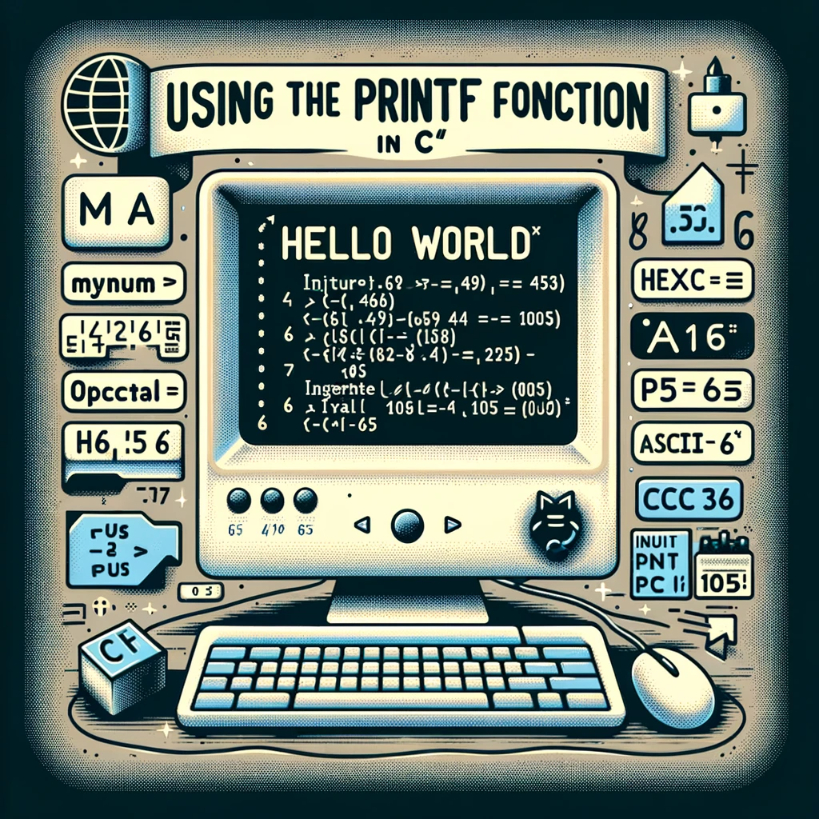A guide to the famous printf() function in C. Shows you how to output data in several ways. The tutorial is not yet complete but will be continued soon.
One of the most popular functions in C is the printf() function.
If you don’t know what printf() does, compile the following code in a C file:
#include
void main(void)
{
   printf("Hello World");
}…and you will get:
Hello WorldIt’s the easiest way to ouput information to the console. But printf() doesn’t know just that, let’s see what else printf() is capable of doing.
Outputting the value of a variable
We have a variable named myNum that stores the number 69. We want to output the value of this variable using the printf() function:
#include
void main(void)
{
   int MyNum = 69;
   printf("Outputting number %d", MyNum);
}Because our variable is of type int we use %d to output its value where we want in the string. The result is:
Outputting number 69With printf() you can also output the number in a hexadecimal form:
#include
void main(void)
{
   int MyNum = 169;
   printf("Number %d in hexadecimal format is %x", MyNum, MyNum);
}The result being:
Number 169 in hexadecimal format is a9Instead of %x you can use %X to get the result in uppercase (A9).
To get the number in octal format use %o as in the following example:
#include
void main(void)
{
   int MyNum = 169;
   printf("Number %d in octal format is %o", MyNum, MyNum);
}And with the result:
Number 169 in octal format is 251Moving on, let’s see how we can output the character represented by an ASCII value. For example the ASCII value 65 outputted as a character gives the letter A. 66 is B, 67 is C and so on.
#include
void main(void)
{
   int MyChar = 65;
   printf("Outputting ASCII value 65: %c", MyChar);
}Outputting ASCII value 65: AHowever, using %c you can at any time pass the character itself, not just the ASCII equivalent. You simply need to enclose it in single quotes ( ‘ ) and store it in a char type of variable:
#include
void main(void)
{
   char MyChar = 'A';
   printf("Outputting character A: %c", MyChar);
}The output being:
Outputting character A: AIf you’re trying to output more than one character you will need to enclose it in double quotes ( ” ) and use %s (string) instead of %c (char):
#include
void main(void)
{
   printf("Geek%s", "pedia");
}
Or if you store the string pedia in a char variable:
#include
void main(void)
{
   char MyString[50] = "pedia";
   printf("Geek%s", MyString);
}No matter if you use a variable or pass the string directly, the result is the same:
Geekpediaprintf() is even capable of showing the address of a variable, thus showing the pointer of that variable. This can be seen in the following example:
#include
void main(void)
{
   int MyVar = 69;
   printf("The address of MyVar is %p", MyVar);
}In my case, the result is:




